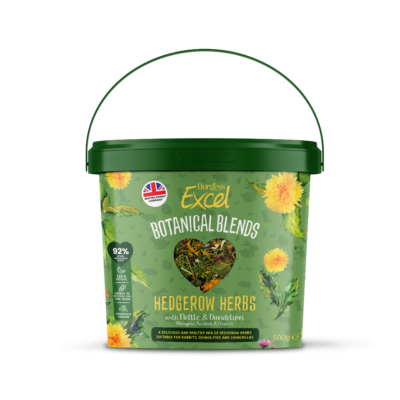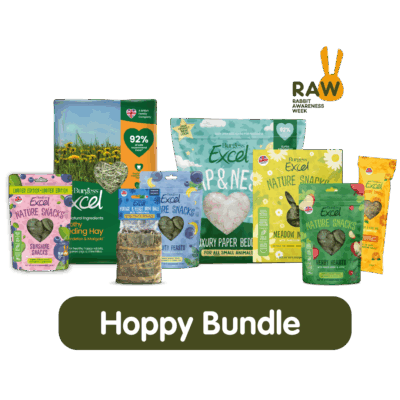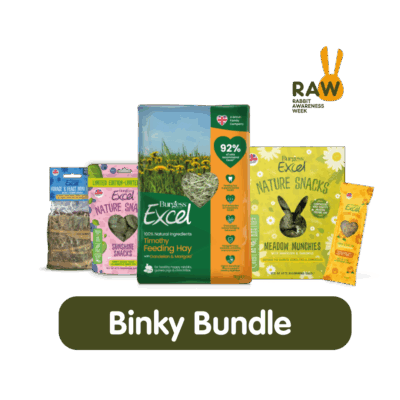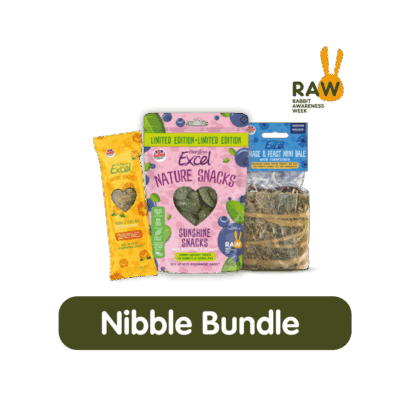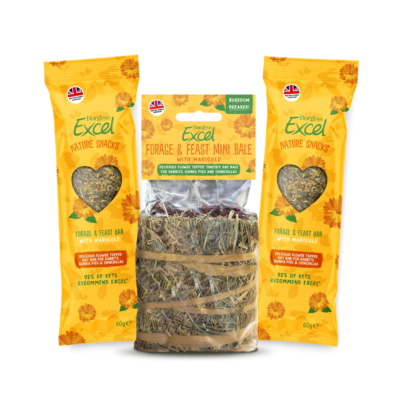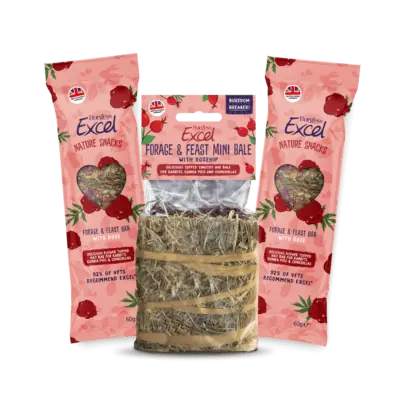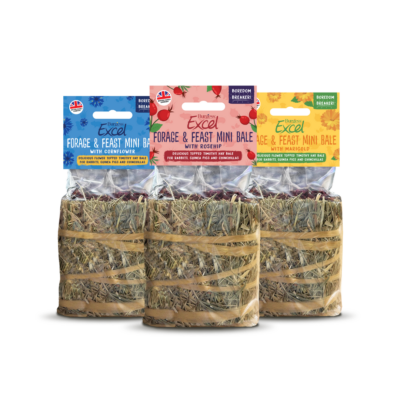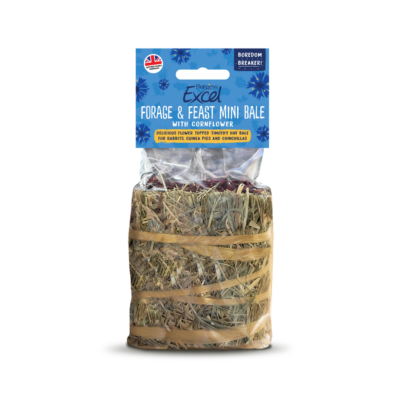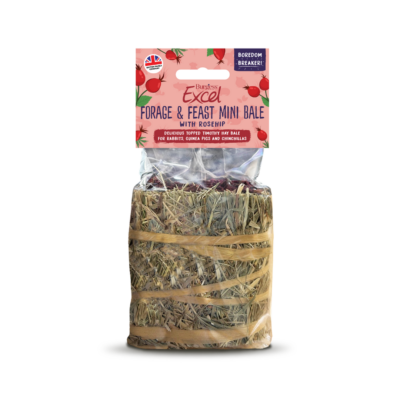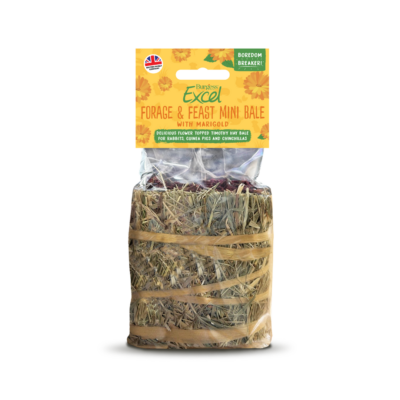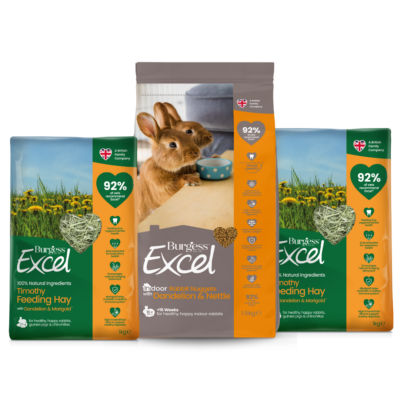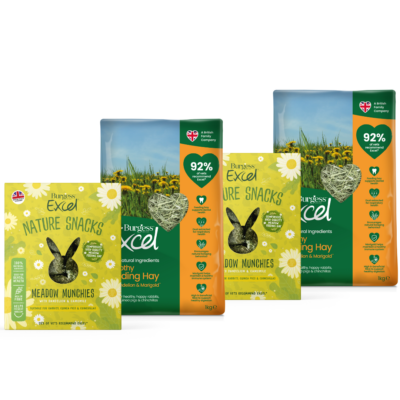Are you wondering what rabbit food is the best choice? Understanding what rabbits eat will help you provide your beloved buns with everything they need to stay happy and robust.
The ideal diet should be made up of healthy foods for rabbits and bunnies that are high in fibre to keep their gut healthy, and fibrous grasses to help prevent their teeth from overgrowing.
Our selection of rabbit foods are made with a formulated balance of nutrients and no artificial colours or flavours. Fresh, high-quality rabbit feeding hay is also essential – and don’t forget yummy healthy rabbit treats to add enrichment to your buns’ day!
Order now and get free delivery when you spend over £30. Subscribe & Save is also available on selected rabbit nuggets and feeding hay, meaning you can save 10% every time you buy from this collection of rabbit food online. That saving could really add up over a year!
Browse our food for rabbits and bunnies below.
Rabbit & Bunny Food FAQs
Got a question about choosing premium rabbit food, feeding hay or treats? To help you learn more about selecting the best food for your bunny rabbits, we’ve put together some useful answers from our nutrition team at Burgess, the pet care experts.
Need more advice?
If you’re at all unsure about the best foods for your bunnies or have any concerns about specific nutritional requirements, ask your local veterinary practice for advice.
You can also call our expert team – available 9am-5pm, Monday-Friday – on 01405 862241 and they’ll be happy to help. Alternatively, use our online contact form to get in touch.

